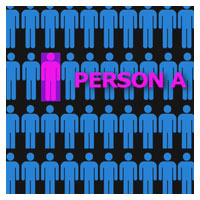The other week I was asked by some scicomm students in Perth, what was my main bit of advice was to them? I replied ‘to take every opportunity to try many different things and gain many experiences’! I guess this reflects how my career has panned out and the fact that I’ve been lucky enough to remain flexible so that I can take opportunities when they arise.
Having studied biology and environmental sciences originally, and completing a fantastic Honours project with BP Refinery (in oily sludge bioremediation!), my first job working in a lab in Canberra with petri dishes and test tubes did not enthrall me at all. I thought ‘oh no, I’ve studied four years, and this is it?’ I think my main issue was the isolation in the lab, so I decided to undertake further environmental management studies after which I worked as an environmental consultant for a while and as a tour guide at the Australian Dinosaur Museum on the side.
While in Canberra I remember meeting someone who was in the Questacon Science Circus. It sounded really cool, and while I did apply with an audition tape (and got to be a runner up), I ended up enrolling in the science communication Masters course at CPAS the next year. At the same time, I secured a contract job through a temporary secretarial (!) agency working for the Australian Science Festival to coordinate the Solar and Advanced Technology Boat Race. These two things combined, cemented my enthusiasm for science communication. Over the next few years, I went on to work at Geoscience Australia as a promotions officer and then at the Australian National University as the science reporter for the ANU Reporter newspaper.
Itchy feet led me to take off an a year’s leave without pay to Switzerland, where I ended up staying for three years, working in a corporate communication role at a surveying and engineering company. Here I was editor for the company magazine and looked after the content of their website. I moved on to their UK office and then gained some exposure of marketing and technical communication of surveying instruments.
It was in fact on the CPAS eScinapse list that I saw the advert for my next big break. I took the job with a new European-funded project that aimed to encourage collaboration of scientists throughout Europe working on infectious disease and food safety. I set up and ran the ‘Med-Vet-Net’ communications unit for five years, a role where I was responsible for the website, publications, media liaison, event management and communication training. It was here that I developed the Med-Vet-Net internship, that consisted of four 2-week modules aimed at developing scientists’ skills in communication, presenting, working with different audiences, understanding stakeholders and embracing the web and new media. During my time at Med-Vet-Net, I formed my own company ‘Science Communications Ltd’ that has gone on to undertake science communication writing, public relations, website design, event management and communication training throughout Europe.
‘Home sweet home’ eventually called, and I’ve recently returned to my hometown of Perth after 17 years of being away. I’m still running my business and I’ve been lucky enough to win an 8-month part-time contract with the WA Museum to coordinate the International Year of Biodiversity, a position shared with Val Gregory at the Australian Museum. This role sees us working with scientific and research organisations to promote biodiversity events that are being held throughout the year as well as encourage them, community groups and the public to upload stories, images and videos to our ‘biodiversity hub’ website www.biodiversity2010.org.au.
I’m also about to start a short-term contact with Curtin University undertaking PR and event coordination for the science and engineering areas while they recruit someone permanently into the position. And, I’ve grand plans to roll out some of my science communication courses that I’ve been running in Europe, having just completed a Certificate IV in Training and Assessment so that I can become an accredited trainer in Australia.
So, my motto is ‘variety is the spice of life’. I’ve had the good fortune to work with many brilliant individuals so far over my varied career and have gained valuable mentors and some very good friends along the way. Take opportunities as they come along, but most importantly, love what you do!
Teresa Belcher
teresa [at] sciencecommunications.co.uk
teresa.belcher [at] museum.wa.gov.au
www.sciencecommuniations.eu
@SciCommTweet

